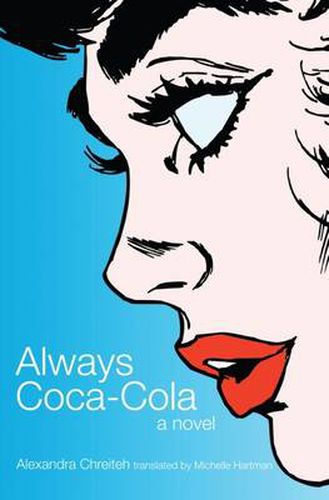Readings Newsletter
Become a Readings Member to make your shopping experience even easier.
Sign in or sign up for free!
You’re not far away from qualifying for FREE standard shipping within Australia
You’ve qualified for FREE standard shipping within Australia
The cart is loading…






Always Coca-Cola is the story of three very different young women attending university in Beirut: Abeer, Jana, and Yasmine. The narrator, Abeer Ward (fragrant rose, in Arabic), daughter of a conservative family, admits wryly that her name is also the name of her father’s flower shop. Abeer’s bedroom window is filled by a view of a Coca-Cola sign featuring the image of her sexually adventurous friend, Jana. From the novel’s opening paragraph- When my mother was pregnant with me, she had only one craving. That craving was for Coca Cola -first-time novelist Alexandra Chreiteh asks us to see, with wonder, humor, and dismay, how inextricably confused naming and desire, identity and branding. The names - and the novel’s edgy, cynical humor - might be recognizable across languages, cultures, and geographies. But Chreiteh’s novel is first and foremost an exploration of a specific Lebanese milieu. Critics in Lebanon have responded in a storm, calling the novel an electric shock and finding that the problems of its characters reflect grave social anomalies. Read Chreiteh and see what the storm is all about.Alexandra Chreiteh beganAlways Coca-Cola as an undergraduate at the Lebanese American University in Beirut. She is now pursuing a Ph.D. in comparative literature at Yale University. Michelle Hartman is an associate professor of Arabic and francophone literature at McGill University in Montreal. She is also the translator of Iman Humaydan Younes’s Wild Mulberries.
$9.00 standard shipping within Australia
FREE standard shipping within Australia for orders over $100.00
Express & International shipping calculated at checkout
Always Coca-Cola is the story of three very different young women attending university in Beirut: Abeer, Jana, and Yasmine. The narrator, Abeer Ward (fragrant rose, in Arabic), daughter of a conservative family, admits wryly that her name is also the name of her father’s flower shop. Abeer’s bedroom window is filled by a view of a Coca-Cola sign featuring the image of her sexually adventurous friend, Jana. From the novel’s opening paragraph- When my mother was pregnant with me, she had only one craving. That craving was for Coca Cola -first-time novelist Alexandra Chreiteh asks us to see, with wonder, humor, and dismay, how inextricably confused naming and desire, identity and branding. The names - and the novel’s edgy, cynical humor - might be recognizable across languages, cultures, and geographies. But Chreiteh’s novel is first and foremost an exploration of a specific Lebanese milieu. Critics in Lebanon have responded in a storm, calling the novel an electric shock and finding that the problems of its characters reflect grave social anomalies. Read Chreiteh and see what the storm is all about.Alexandra Chreiteh beganAlways Coca-Cola as an undergraduate at the Lebanese American University in Beirut. She is now pursuing a Ph.D. in comparative literature at Yale University. Michelle Hartman is an associate professor of Arabic and francophone literature at McGill University in Montreal. She is also the translator of Iman Humaydan Younes’s Wild Mulberries.